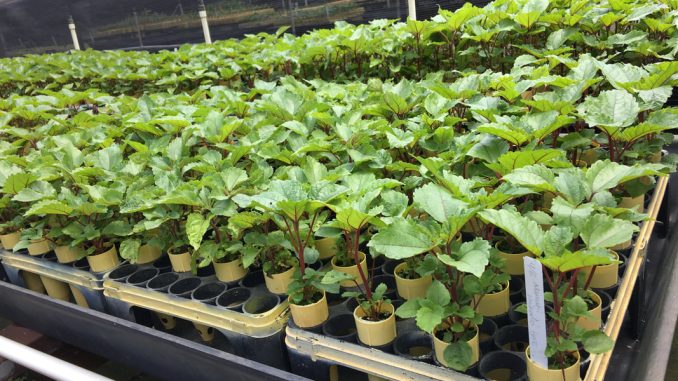
Original Article by Lance D Johnson
More than 55 million people worldwide are living with dementia, and the problem is only getting worse. According to Alzheimer’s Disease International, dementia cases are expected to double every 20 years, reaching 78 million by 2030 and 139 million by 2050.
Dementia is a condition that’s often equated with old age, something that is “genetic” and inevitable for millions of people worldwide. However, new research shows that herbal medicines can reverse dementia and prevent memory decline, suggesting that there are more factors at play with dementia that are in our control.
Three little-known herbal medicines show promise for preventing dementia. These include: mamaki tea and fruit from Hawaii, Ziziphus jujuba var. spinosa (jujube fruit) from East Asia, and Acorus gramineus (Japanese sweet flag) from China.
Mamaki tea and fruit combats toxic proteins that cause dementia
A study investigating the potential of the Hawaiian native herb Mamaki has revealed promising results in the fight against neurodegenerative diseases like Alzheimer’s disease, frontotemporal dementia, and dementia with Lewy bodies. These disorders are primarily caused by the accumulation of toxic proteins such as amyloid-beta (A?), tau, ?-synuclein, and TDP-43 in the brain. This protein buildup begins decades before the onset of symptoms, suggesting that early intervention could significantly slow or prevent the progression of dementia.
A hot water extract of Mamaki leaves helped to reduce pathologies of dementia, restoring synaptophysin levels (a protein essential for synaptic function), suppressing microglial activation (a marker of inflammation in the brain), and improving memory in the treated mice. In addition to reducing brain inflammation, the fruit powder boosted the expression of brain-derived neurotrophic factor (BDNF) — a protein crucial for neuron survival and growth. It also promoted neurogenesis, or the creation of new neurons, suggesting that the fruit powder may have the ability to repair brain cells damaged by toxic oligomers associated with neurodegeneration.
Jujube fruit combats neurodegenerative diseases
A new study published in eLife Sciences highlights the potential of Zizyphi spinosi semen (ZSS), a medicinal herb used in traditional Chinese medicine, in combating neurodegenerative diseases. Researchers found that ZSS, in both its hot water extract and crushed powder form, demonstrated significant benefits in treating Alzheimer’s disease, frontotemporal dementia, and Parkinson’s disease in aging mice.
The hot water extract of ZSS was shown to reduce amyloid-beta (A?) and tau protein accumulation while also improving cognitive function. In Parkinson’s disease models, the simple crushed powder of ZSS proved even more effective, showing stronger results in alleviating ?-synuclein pathology — a key feature of the disease — as well as improving both motor and cognitive functions.
Japanese sweet flag reverses cognitive decline
Acorus gramineus Aiton, a plant traditionally used in Chinese medicine for over a century, may hold promise as a therapeutic agent for cognitive decline, according to a recent preclinical systematic review. The study, which analyzed data from 34 animal studies involving 1,431 subjects, assessed the efficacy of extracts or active components from the plant (EAAGA) in improving cognitive function.
The review, which included studies published through June 2019, found that EAAGA significantly enhanced cognitive performance in a variety of behavioral tests, including the Morris water maze, electrical Y-maze, radial eight-arm maze, and step-through test. These tests are commonly used to assess learning and memory abilities in animal models. Specifically, the analysis revealed that EAAGA reduced escape latency and error times, while increasing the amount of time spent in the target area and the number of platform crossings, suggesting improvements in memory and learning.
The extracts provided anti-inflammatory, antioxidant, and anti-apoptotic properties that suppressed excessive activation of astrocytes, which are linked to neuroinflammation. The study showed the herb can protect against neurotoxicity, regulate synaptic plasticity, and stimulate the cholinergic system. The authors of the review concluded that EAAGA could be a promising candidate for further research and clinical trials aimed at treating cognitive impairment, particularly in conditions like Alzheimer’s disease and other neurodegenerative disorders.





Be the first to comment